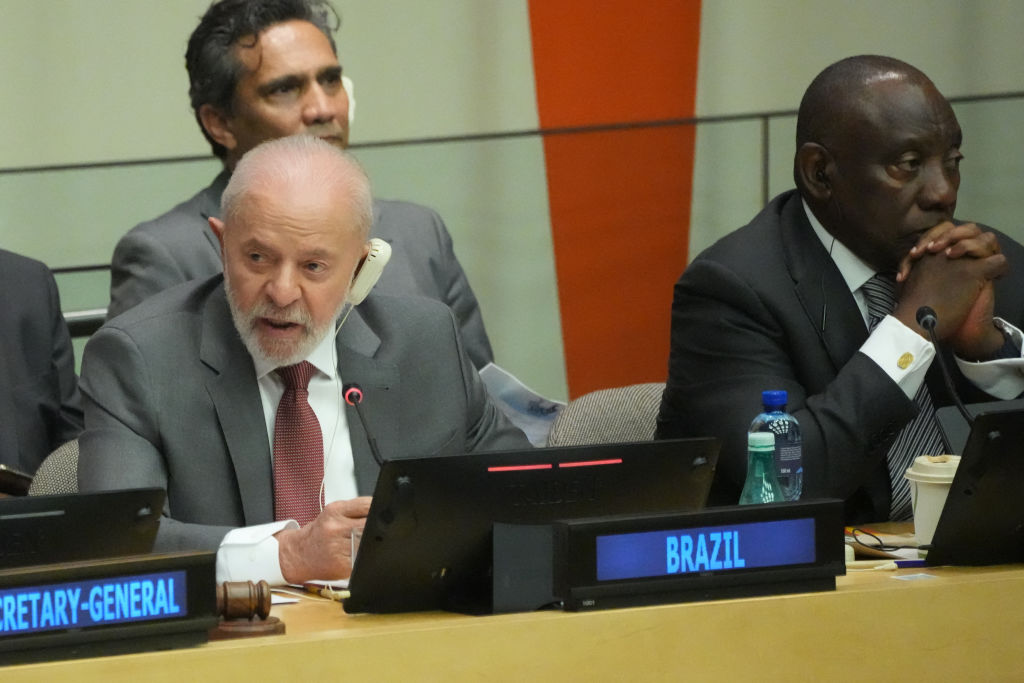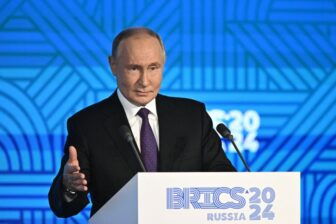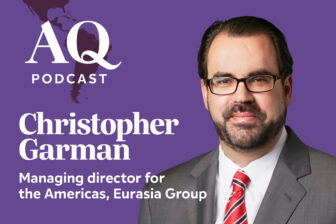RIO DE JANEIRO — Starting Monday, Brazil is hosting the G20 Summit of international leaders in Rio de Janeiro. It’s a crowning diplomatic highlight of Luiz Inácio Lula da Silva’s third presidential term. But it also lays bare several problems he is facing, both in foreign policy and Brazilian domestic politics.
Lula is dealing with fierce right-wing opposition at home and has made little progress in his ambitious bid to serve as an intermediary in global conflicts in Ukraine and Gaza. The summit is a marquee venue for addressing issues like inequality and hunger that are dear to Lula, and achievements like a global anti-hunger alliance could come out of this summit. However, other priorities, like reform to multilateral institutions, implementing a global tax on billionaires, and promoting climate action, seem increasingly overshadowed by the imminent return of Donald Trump to the U.S. presidency.
Times have changed significantly since, at the 2008 summit, U.S. President Barack Obama asked Lula what his secret was to becoming the most popular politician on Earth. Fifteen years later, few would lavish such praise on Lula today, as he struggles with the challenges of a polarized world, both abroad and at home—highlighted by the invasion of Brazil’s governmental buildings on January 8, 2023, and, most recently, a failed bomb attack in the capital’s main square on November 13.
The slogan of Lula’s new administration—“Brazil is back”—promised the return of Brazilian commitments on human rights and climate change after the ruptures of the Bolsonaro years. However, Lula’s third term has been frustrating from a diplomatic point of view. The international landscape is significantly different, with increasing polarization between China and Russia on one side and the West on the other, and domestic struggles between right and left escalating into diplomatic crises, especially in Latin America.
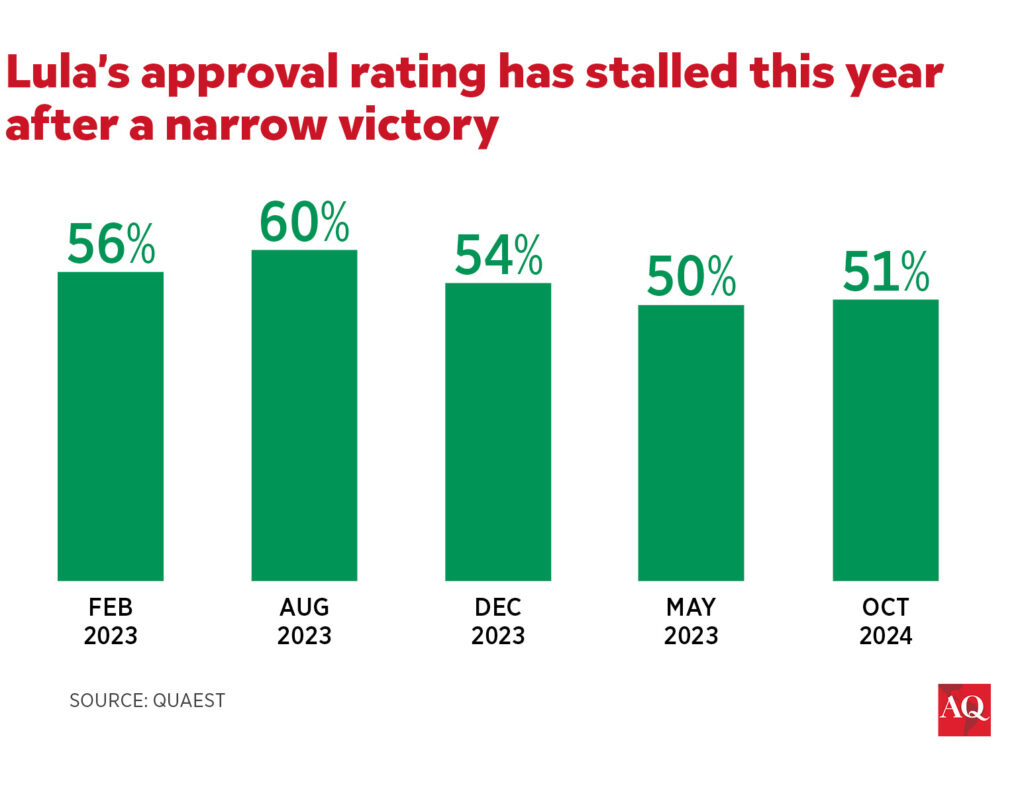
Lula tried, without success, to establish himself as an important player in mediating the wars in Ukraine and the Middle East but was rejected by Ukrainian President Volodymyr Zelensky and by Israeli Prime Minister Benjamin Netanyahu, who both perceive the Brazilian president to be a supporter of their enemies. Although Brazil’s position has more shades of gray than that, with the Ministry of Foreign Affairs condemning Russia’s aggression and the terrorist attacks of Hamas, it is true that Lula often makes strong statements in defense of Vladimir Putin and compared Israel’s war in Gaza to the Holocaust.
In Latin America, Brazil is in crisis with two important neighbors: Argentina and Venezuela. Due to ideological differences, Lula and Argentine president Javier Milei do not even speak to each other. The authoritarian regime in Venezuela has long been a divisive issue in Brazil, with left-wing politicians usually supporting Nicolás Maduro despite the international outrage at his actions.
Lula started his new term with a warm welcome to Maduro in a state visit to Brasília, but then became an important mediator in the attempt to ensure democratic elections in the country. When the Venezuelan president announced fraudulent results and launched a new wave of political persecutions, the relationship soured. However, Lula won’t call the regime a dictatorship, and his own Workers’ Party keeps praising Maduro.
The opportunities of the G20
The G20 is one oftwo crucial multilateral meetings in Lula’s third presidential term. The other is COP30 on climate change, which will take place in the Amazon city of Belém in 2025.These are the best opportunities for Lula to achieve major victories in his foreign policy despite the challenges.
Lula’s administration proposed three main issues for the Brazilian presidency of the G20: global hunger and extreme poverty, climate change and the energy transition, and the reform of multilateral economic institutions. The first theme is especially important to the Brazilian president due to the legacy of his social policies, such as the conditional cash transfer program Bolsa Família. It’s not a controversial goal, and there are good possibilities that the G20 will be able to launch a global alliance to fight hunger, with dozens of countries signing on.
Other proposals presented by Brazil are less likely to bear fruit, like a global tax on billionaires—something that the Brazilian government couldn’t even approve domestically. Despite the problems, Lula has changed the conversation of the G20 and made issues like inequality the center of the group’s agenda.
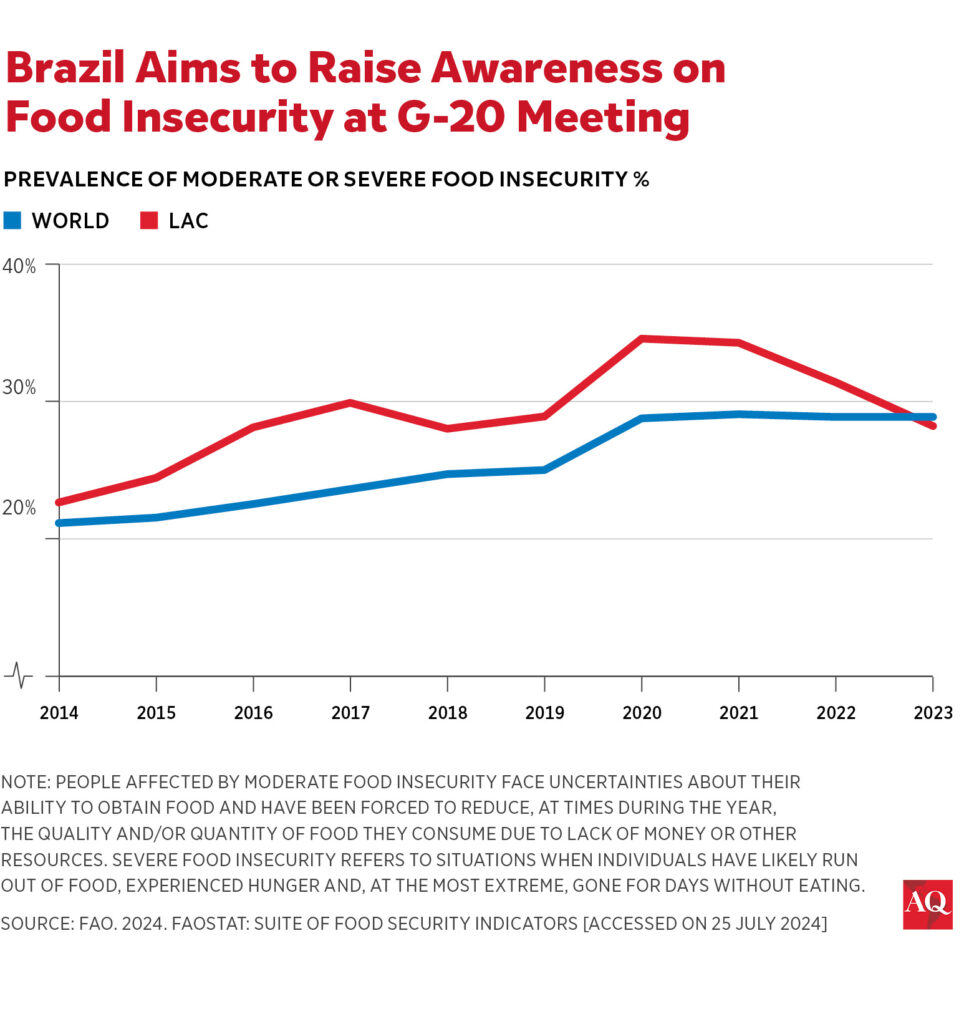
The G20 will be held in the shadow of Trump’s victory in the U.S. presidential election, which will complicate the bilateral relationship between Brazil and the United States. Trump and Lula have very different, even opposite, worldviews and Trump is an important reference for the right-wing opposition in Brazil, which idolizes him.
Trump’s return to the White House also means a weaker American commitment to climate diplomacy, creating problems for the Brazilian goals at the G20 and COP30. It will also make it much harder to achieve other diplomatic goals of Lula, such as creating a global tax on billionaires and reforming multilateral institutions to give more power to Global South countries. This may stimulate Lula to search for more substantial support from China and Russia, worsening the polarization of global politics. Lula was one of the creators of the BRICS in 2006, but Brazil has an ambivalent position on the recent expansion of the group, which jumped from the original four members to nine, with several more wanting to join. On the one hand, BRICS is more influential than ever. On the other hand, the inclusion of authoritarian regimes, such as Iran, is leading the group to anti-West agendas that are against the more balanced Brazilian perspective.
Nonetheless, it’s worth noting that the Brazilian president stated on several occasions that he wanted Putin to attend the summit despite the warrant from the International Criminal Court to arrest him. Putin will not be attending the meeting after all. And that following the G20, Chinese President Xi Jinping will remain in Brazil for a state visit.
The G20 Summit may well be Lula’s finest hour in foreign policy in his third and most difficult presidential mandate. But in this new age of polarization, even the biggest victories are tainted by frustration, problems and the feeling of unfulfilled potential.



